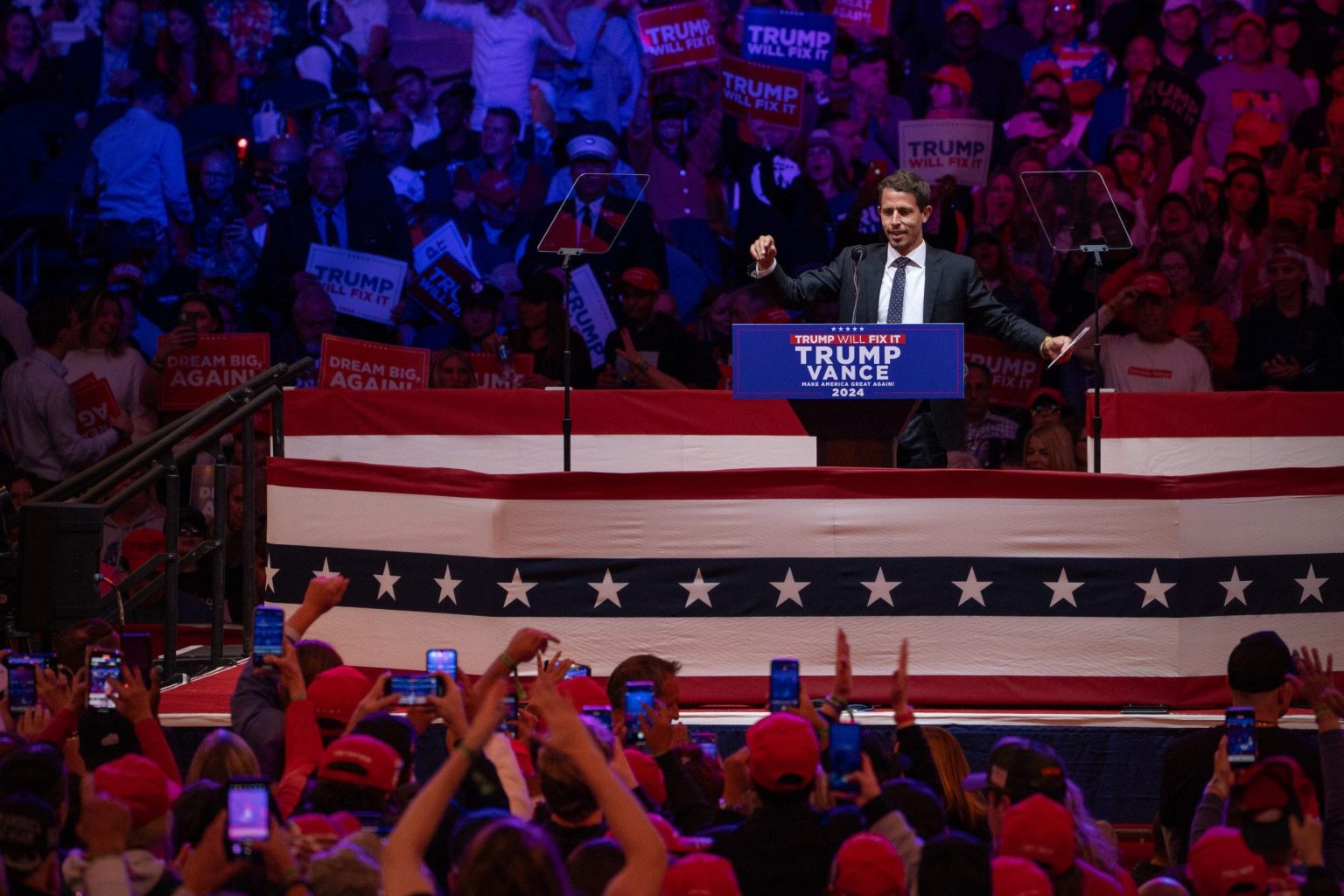Comedian Tony Hinchcliffe made controversial remarks during former President Donald Trump’s New York City rally at Madison Square Garden, jokingly referring to Puerto Rico as a “floating island of garbage.” The comments drew immediate criticism from politicians on both sides of the aisle, including Vice President Kamala Harris’ running mate Tim Walz and Democratic New York Rep. Alexandria Ocasio-Cortez. Florida GOP Rep. Maria Elvira Salazar and Rep. Carlos Gimenez, who are both Cuban American, also condemned Hinchcliffe’s remarks as racist and not in line with GOP values.
Despite the backlash, the Trump campaign sought to distance itself from Hinchcliffe’s comments, with senior Trump campaign adviser Danielle Alvarez stating that the joke did not reflect the views of President Trump or the campaign. Hinchcliffe, however, doubled down on his remarks, claiming that those criticizing him lacked a sense of humor. He directed a post at Ocasio-Cortez and Walz, defending his joke as being taken out of context and arguing that he made fun of everyone in his set, not just Puerto Rico. His response sparked further controversy and criticism.
The controversy surrounding Hinchcliffe’s remarks highlights the ongoing debate over what is considered acceptable humor and the line between comedy and offensive speech. While comedy is often used as a way to address sensitive subjects and provoke thought, jokes that target specific groups or perpetuate harmful stereotypes can have real-world consequences. In this case, the comments made about Puerto Rico prompted swift condemnation from politicians and raised questions about the boundaries of comedic expression and the potential impact of offensive humor.
The incident also underscores the role of public figures and influencers in shaping public discourse and setting the tone for acceptable behavior. Politicians like Ocasio-Cortez and Salazar used their platforms to denounce the comments and call for more respectful dialogue. The response from the Trump campaign and other Republicans further illustrates the importance of holding individuals accountable for their words and actions, even in the context of comedy. As debates over free speech and political correctness continue to evolve, incidents like this serve as a reminder of the power of words to shape perceptions and influence attitudes.
In light of the controversy, the incident may also prompt discussions about cultural sensitivity, racial stereotypes, and the diversity of perspectives within the Latino community. Puerto Rico’s status as a U.S. territory and its complex relationship with the mainland have long been subjects of debate and contention. Jokes that demean or dehumanize the people of Puerto Rico can perpetuate harmful stereotypes and contribute to a climate of division and intolerance. Moving forward, it is crucial for comedians and public figures to be mindful of the impact of their words and to strive for comedy that is inclusive, respectful, and thought-provoking. Ultimately, the fallout from Hinchcliffe’s remarks serves as a cautionary tale about the power of humor to both entertain and offend, and the responsibility that comes with wielding that power effectively.


